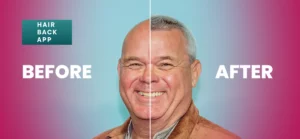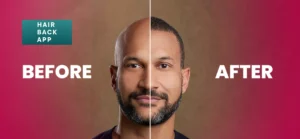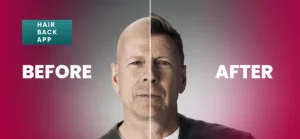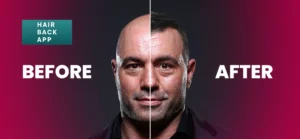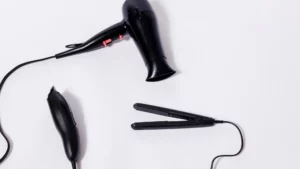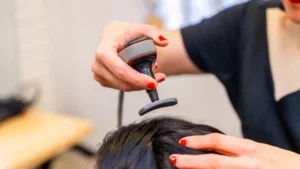Impact of smoking on hair transplants is a crucial consideration for anyone planning to undergo this procedure.
Smoking can significantly affect hair health and the success of hair transplants, making it essential for smokers to understand these effects.
My name is Emma Wright, your resident hair restoration specialist. Today we’ll be discussing the impact of smoking on hair transplants, this article will explore how smoking influences hair transplants, the importance of quitting smoking before surgery, and strategies to help you stop smoking for better hair transplant outcomes.
Pre-Transplant Considerations: Why Smoking Cessation is Crucial Before Surgery
Before undergoing a hair transplant, it’s important to understand how smoking can impact your surgery. Stopping smoking beforehand can significantly improve your chances of a successful outcome.
Impact of smoking on hair transplants begins long before the actual surgery. Smoking reduces blood flow, which is vital for the healing process. Nicotine, carbon monoxide, and other harmful chemicals in cigarettes constrict blood vessels, decreasing the oxygen supply to your scalp. This can impair the body’s ability to heal and increase the risk of complications during and after the transplant.
For those considering a FUE hair transplant, smoking cessation is critical. Surgeons often recommend stopping smoking at least two weeks before the procedure. This period allows your body to clear out some of the harmful chemicals, improving your overall health and increasing the chances of a successful transplant.
Impact on Healing: How Smoking Can Hinder the Healing Process
The healing process after a hair transplant is delicate and requires optimal conditions. Smoking can disrupt this process, leading to complications and less favorable results.
Impact of smoking on hair transplants is particularly evident during the healing phase. Smoking impairs circulation, which is crucial for delivering nutrients and oxygen to the transplant site. This can lead to poor wound healing, increased scarring, and a higher risk of infection.
After a Sapphire Micro FUE or Bio FUE Hair transplant, the healing process is delicate. Smokers may experience prolonged healing times, which can affect the final results of the transplant. The reduced blood flow caused by smoking means that the transplanted hair follicles may not receive adequate nutrients, leading to lower survival rates for the transplanted hair.
Long-Term Effects: The Negative Impact of Smoking on Hair Growth and Health
Even after the initial healing period, smoking continues to have detrimental effects on hair health and growth. Long-term smokers may find that their transplant results are not as durable.
Impact of smoking on hair transplants doesn’t end with the surgery and immediate healing process. Long-term smoking can negatively affect hair growth and overall hair health. Smoking accelerates hair loss by damaging hair follicles and reducing blood flow to the scalp. This can lead to thinning hair and may undermine the results of your hair transplant over time.
Smokers are also more prone to complications such as chronic scalp inflammation and increased scarring. These conditions can affect the density and appearance of the transplanted hair, making it harder to achieve the desired results. Moreover, the ongoing exposure to harmful chemicals can continue to weaken hair follicles, leading to further hair loss even after a successful transplant.

Tips for Quitting: Resources and Strategies for Quitting Smoking Before a Transplant
Quitting smoking can be challenging, but it is essential for the success of your hair transplant. Here are some strategies and resources to help you quit smoking before your procedure.
Quitting smoking is the best way to minimize the impact of smoking on hair transplants. Here are some effective strategies to help you quit:
- Seek Support: Join a support group or seek counseling to help you quit smoking. Talking to others who are going through the same experience can provide motivation and practical advice.
- Nicotine Replacement Therapy (NRT): Consider using NRT products like patches, gum, or lozenges to manage withdrawal symptoms. These products can help reduce cravings and ease the transition to a smoke-free life.
- Prescription Medications: Consult your doctor about prescription medications that can help you quit smoking. These medications can reduce cravings and withdrawal symptoms, making it easier to quit.
- Healthy Lifestyle Changes: Adopt a healthy lifestyle by incorporating regular exercise, a balanced diet, and stress management techniques. These changes can improve your overall health and make it easier to quit smoking.
- Avoid Triggers: Identify and avoid situations or activities that trigger the urge to smoke. This might include avoiding certain social settings, managing stress, or finding alternatives to smoking during breaks.
- Behavioral Therapy: Engaging in behavioral therapy can help you identify and change the habits and patterns associated with smoking. Working with a therapist can provide strategies to cope with cravings and stress.
- Mobile Apps: Use mobile apps designed to help people quit smoking. These apps can provide daily motivation, track your progress, and offer tips and support.
- Mindfulness and Relaxation Techniques: Practice mindfulness, meditation, or other relaxation techniques to manage stress and reduce the urge to smoke. Techniques such as deep breathing, yoga, or progressive muscle relaxation can be particularly helpful.
- Hypnotherapy: Some people find success with hypnotherapy, which can help change subconscious patterns related to smoking. Consulting a certified hypnotherapist can provide another avenue for support.
- Stay Informed: Educate yourself about the benefits of quitting smoking and the specific impacts of smoking on hair transplants. Knowing the facts can reinforce your commitment to quitting.
By quitting smoking, you significantly increase the chances of a successful FUE hair transplant and improve your overall hair health.
Conclusion
Impact of smoking on hair transplants is profound, but the decision to quit smoking can lead to significantly better results and overall health improvements.
The impact of smoking on hair transplants is profound, affecting both the short-term and long-term success of the procedure. Smokers face higher risks of complications, prolonged healing times, and less satisfactory results. However, by quitting smoking, you can greatly improve the success rate of your hair transplant and promote healthier hair growth.
If you’re considering a hair transplant, take the necessary steps to quit smoking. Use the resources and strategies available to you and seek support from healthcare professionals. The benefits of quitting extend beyond your hair, improving your overall health and well-being.
Remember, the impact of smoking on hair transplants is significant, but with determination and the right support, you can achieve the best possible outcome for your hair transplant and enjoy healthier hair for years to come.


